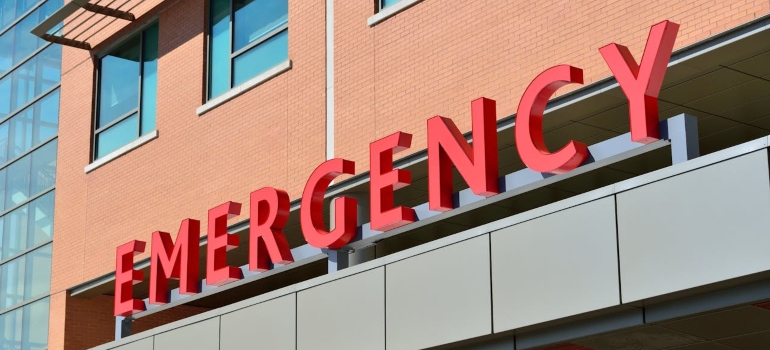The last thing you want during rehab is to worry about surprise costs. Yet, unexpected bills add a heavy burden for many people entering treatment, especially when they come from out-of-network providers or include unanticipated fees for various services. When these “surprise medical bills” appear, they can significantly impact financial stability, adding stress during an already challenging period. But by taking proactive steps, you can prevent surprise medical bills in rehab. Planning ahead to address these potential costs creates peace of mind, allowing individuals and their families to focus on healing without financial worry. In this guide, we’ll cover specific ways to protect yourself from surprise bills, helping to make your rehab experience smoother and financially manageable.
Why Surprise Medical Bills Are Common in Rehab
Surprise medical bills in rehab happen more frequently than you might think. Often, they arise when a rehab facility is technically in-network with your insurance, but some of the services provided aren’t. For example, while the facility might have general coverage, specific doctors, therapists, or specialists within that facility may be out-of-network. This can result in unexpected out-of-pocket expenses, adding up quickly without prior notice.

Additional Factors Contributing to Surprise Medical Bills
- Emergency services: When an individual enters rehab through an emergency or immediate need, there’s often little time to check which services or providers are covered.
- Additional treatment charges: While basic rehab services might be covered, other services, like certain types of therapy or specific medication, might incur additional costs.
- State and facility differences: Different states and facilities may have unique billing practices, making it harder to anticipate exact charges.
Planning helps you understand and potentially avoid these unexpected bills. This way, you’ll feel confident in your rehab journey, knowing your finances won’t surprise you along the way. Addressing these issues early on can bring peace and allow you to focus on recovery.
Understanding Your Insurance Coverage for Rehab Services
Understanding your insurance coverage is an important first step in avoiding surprise bills. Health insurance policies often vary widely in their rehab coverage, particularly between in-network versus out-of-network services. When providers or services fall outside your network, insurance might not cover as much—or anything—leaving you with the bill. For example, if your insurance includes Tricare, check for a drug rehab that accepts Tricare to confirm coverage before treatment. Key steps for reviewing coverage:
- Read the details: Look carefully at your insurance policy’s rehab section, noting which services are fully or partially covered.
- Speak to an insurance representative: To fully understand your coverage, call your insurance provider to confirm specifics related to rehab care.
- Document the conversation: Take detailed notes when speaking with representatives, keeping a record of what’s covered in case issues arise later on.
Don’t rely on general assumptions, as misconceptions about rehab insurance are common. For example, even those with solid insurance coverage might assume all rehab costs are automatically included when, in reality, out-of-network providers could lead to additional bills.

Another common misconception is that once the deductible is met, all costs will be covered. However, copays and limits on out-of-network providers often still apply. If you’re unsure about the details, consider consulting with an insurance advocate or a billing specialist for more insights.
Get a Breakdown of Expected Costs from the Rehab Facility
Before beginning treatment, request a comprehensive and itemized estimate of expected costs from the rehab facility. Having a breakdown allows you to prepare for any additional costs that may arise. Questions to ask when requesting a cost breakdown:
- Which therapies are included in the base cost?
- Are there any additional costs for specialized treatment, medication, or counseling?
- Is there a difference in cost for in-network versus out-of-network specialists within the facility?
This step is crucial for many people, particularly those opting for drug rehab WV services, where the facility and additional costs can vary widely. Make sure the facility clarifies charges around specialized care, such as medication management or dual diagnosis treatment.
Some facilities may provide financial assistance options for those struggling to cover costs. Don’t hesitate to ask if they offer sliding-scale fees, payment plans, or grants for qualifying patients. These details will help you get a clear picture of expenses before treatment begins.
Check State Laws and the “No Surprises Act”
Only a small percentage of the almost 19 million Americans aged 12 and older who need rehab in 2018 were able to receive it. One of the main reasons is financial strain. Since 2022, the No Surprises Act has provided necessary protection for patients across the U.S., shielding them from unexpected out-of-network medical bills in certain situations. Primarily covering emergency care, the Act prevents patients from bearing the financial burden of out-of-network services in urgent situations, allowing them to focus on getting immediate care.

For instance, if you unexpectedly require an out-of-network specialist while in rehab, this Act might shield you from bearing the entire cost yourself. However, it’s worth noting that not all rehab services may qualify under this Act’s protection, so understanding which ones do is important.
State-Specific Laws
Besides the No Surprises Act, some states have their own additional protections for patients in non-emergency situations, including rehab. If you’re seeking alcohol rehab WV or drug rehab services in specific states, check with state resources to see if additional protections apply.
Verify Network Status of Providers and Specialists
Even when a rehab facility is in-network, the individual providers, such as psychiatrists, doctors, and counselors, might be out-of-network. This is a common reason for surprise bills in rehab, as these out-of-network specialists may charge separately from the main facility, resulting in additional costs. Tips for checking network status:
- Ask for a provider list: Request a full list of doctors, therapists, and other professionals who will be part of your rehab team.
- Confirm their network status: Call your insurance provider to verify that each provider is in-network.
- Check for substitute providers: Sometimes, a particular specialist may not be available, so confirm whether any substitutes are also covered.
The network status of providers can make a significant difference in your total rehab costs. By ensuring that each provider is in-network, you’ll avoid unexpected out-of-pocket charges, making the rehab experience more affordable.
Understand Pre-Authorization Requirements
Many insurance policies require pre-authorization for rehab treatments, meaning the insurer must approve services before you can access them. Without pre-authorization, your insurance may deny coverage, resulting in higher out-of-pocket costs. Understanding this requirement for those covered under policies like Humana rehab coverage is especially important, as it can affect what’s covered and what isn’t. Steps to secure pre-authorization:
- Speak to your insurance provider: Confirm which rehab services require pre-authorization and ensure you’ve completed the necessary steps.
- Ask the rehab facility for help: Many rehab centers are familiar with the pre-authorization process and can assist you in securing the necessary approvals.
- Double-check your records: Keep documentation confirming pre-authorization to avoid disputes over coverage down the road.
By securing pre-authorization, you reduce the likelihood of unexpected bills, making sure you’re covered for treatments necessary for your recovery.

Ask About Additional or “Hidden” Fees
Additional or hidden fees in rehab can arise from services like lab work, medication adjustments, and facility fees. These charges are often overlooked, but understanding them before treatment helps prevent surprises. Examples of common hidden fees:
- Lab fees: Charges for regular tests to monitor progress or check for substances.
- Medication fees: Costs for prescriptions, especially if dosage adjustments are frequent.
- Specialized therapy charges: Non-standard therapies, like art therapy or mindfulness sessions, may have separate fees.
- Facility fees: These might apply to room upgrades or extended stays.
Rehab can come with a wide range of charges that aren’t always apparent upfront. By asking for a breakdown and clarifying these fees, you’ll have a more accurate sense of your financial commitment.
Explore Financial Assistance Programs
Financial assistance can address some of the challenges women encounter in rehab, especially for those managing family responsibilities or limited financial resources. By reducing costs, more people can access the care they need. These options might include sliding scale fees based on income, payment plans, or financial aid for qualifying patients. Financial aid options at rehab centers:
- Sliding scale fees: A reduced fee structure based on income, allowing those in different financial situations to afford treatment.
- Payment plans: Flexible arrangements that break down the cost of care into monthly payments.
- Scholarships or grants: Some rehab centers offer grants for qualifying patients, especially in cases of demonstrated financial need.
For those considering rehabs in WV, many state facilities offer financial aid programs to ensure that people who need treatment can receive it. These options help reduce the financial barrier to rehab, making it easier for everyone to access necessary care.
Consider Out-of-Pocket Maximums and Deductibles
Out-of-pocket maximums and deductibles can significantly impact the total cost of rehab, making it important to understand where you stand with your insurance before treatment. If you’ve already met your deductible, the costs may be lower. Similarly, if you’re close to your out-of-pocket maximum, additional expenses might be covered by insurance. How to use deductible and out-of-pocket limits to your advantage:
- Calculate your current deductible status: If it’s already met, most subsequent costs will have partial or full coverage.
- Monitor your out-of-pocket maximum: Once reached, insurance may cover the remaining costs, reducing expenses during rehab.
- Plan timing around these limits: If you’re close to meeting either, you may benefit financially by starting treatment sooner rather than later.

Checking your insurance’s deductible and out-of-pocket maximum is a critical step before enrolling in rehab. It allows you to plan and estimate costs, making rehab expenses more manageable.
Discuss Payment Plans with the Rehab Facility
Why do people stop going to rehab? Financial barriers are often a reason. Many rehab centers offer flexible payment plans, making large bills easier to handle over time. Payment plans are helpful when certain services or providers fall outside insurance coverage. Benefits of rehab payment plans:
- Monthly installments: Pay in smaller, manageable amounts rather than one large bill.
- Low or no interest options: Some facilities offer interest-free plans, which reduce additional costs.
- Flexible terms: Choose a payment term that suits your financial situation, easing the financial strain.
Payment plans can be particularly useful for those undergoing treatment for longer periods or who encounter unexpected costs. Facilities often have various options available, so it’s beneficial to explore these possibilities if insurance doesn’t cover all services.
Utilize an Insurance Advocate or Billing Specialist
Navigating insurance and billing can be overwhelming. By working with an insurance advocate or billing specialist, you gain access to expert guidance that can help clarify your costs and negotiate any unexpected bills. Ways an insurance advocate or billing specialist can help:
- Pre-authorizations and claims: Advocates assist in managing complex claims and ensuring pre-authorizations are in place.
- Billing disputes: Specialists help resolve billing disputes, clarifying charges and potentially negotiating adjustments.
- Cost analysis: They review billing documents, looking for errors or overcharges that may have occurred.
Some rehab centers have billing specialists on staff who can help, or you might hire an independent advocate. These professionals make it easier to navigate the insurance system, allowing you to focus on recovery rather than financial details.
Final Tips: Staying Proactive and Informed
Taking a proactive approach to your rehab expenses is necessary to avoid unexpected bills. By addressing these potential costs before starting treatment, you gain control over your financial situation, helping you feel more secure in your decision. Checklist to avoid surprise medical bills:
- Verify insurance coverage and document what is and isn’t covered.
- Request a detailed cost breakdown from the rehab facility.
- Confirm the network status of all providers and specialists.
- Secure any necessary pre-authorizations.
- Inquire about potential additional fees and financial assistance options.

Following these steps can prevent surprise medical bills in rehab, making the recovery process less financially stressful.
Prevent Surprise Medical Bills in Rehab with a Proactive Approach
A well-prepared approach can help prevent surprise medical bills in rehab, allowing you to focus on your recovery without added financial worry. Understanding your insurance, verifying costs with the facility, and exploring payment options can create a smoother path to sobriety. Thoughtful planning ensures you can confidently move forward, prioritizing your well-being and focusing on the healing journey ahead.



